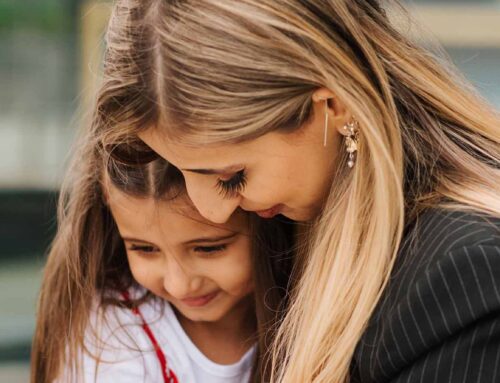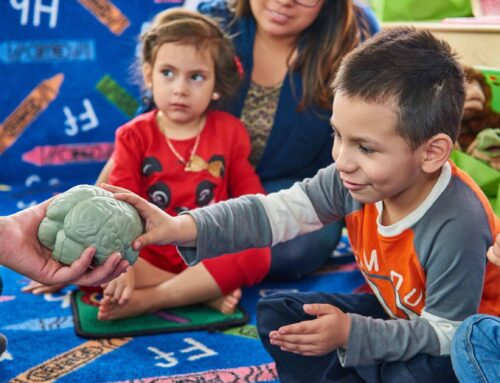FocusedKids is built around the belief that quality social emotional health is a basic human right for every child and adult.
We believe that people with strong social emotional health demonstrate self-control, communicate well, problem solve, and are empathic, respectful, grateful, gritty, and optimistic.
Why it Matters for Children
We also believe all children need to learn social emotional health skills from the adults in their lives in order to be happy and competent human beings. Every brain is wired to acquire social emotional skills, but each person must first learn and practice them in order to use them.
The optimal time in brain development to learn social emotional skills is between the ages three to five when the brain is growing fast and at its most receptive to learning.
The foundation for learning these skills includes, first, access to safe relationships. And, second, the ability to self-regulate.
Why Safe Relationships Matter
We create safe relationships by providing safe physical environments–whether at home or in the classroom–and allowing for positive connections that can be trusted in. In the context of safe relationships, kids can begin learning the ability to control thoughts, actions, and reactions. In other words, they can begin wiring their brain for self-regulation, which we’ll get into in just a second. They are fully capable of beginning this learning the age of three and everyone is able to learn self-regulation throughout the lifespan.
This is why the foundation of the FocusedKids Method is safe relationships.
What are Self-Regulation and Co-Regulation?
Self-regulation is part of a larger system called executive function. It involves managing emotions, controlling impulses, and focusing and paying attention. A person who is able to self-regulate can calm down during an upset or a period of stress.
Self-regulation is influenced by external factors like the environment and interactions with others. It is also influenced by internal factors such as temperament. The particular temperament children are born with impacts how easily they are able to regulate themselves. Have you ever noticed that young children from the same family can have different abilities to calm themselves down?
Young children can become dysregulated (i.e. upset, inconsolable, angry, or anxious) easily in many situations such as transitions, during changes in routine, when experiencing fatigue, or lacking the ability to communicate their needs, etc. To learn how to regulate themselves, children must have the opportunity to practice, many times a day, how to return to a clam state. In other words, they need the opportunity to practice self-regulation.
FocusedKids helps children understand the concept of self-regulation by coaching significant adults in their lives how to regulate first.
By regulating first, adults have the opportunity to not only model the skills, but to practice co-regulation. The idea of co-regulation is used to describe how calm and collected adults can allow for children to absorb their calm and collected state. This can happen by sitting next to the child when they are upset, acknowledging the difficult time they are having, breathing slowly, and simply being there with the child in a calm and connected manner. This way adults can not only model the skills of self-regulation for children, but also allow children to share in their store of calm. In the words of Richard Davidson, Ph.D., “Children don’t listen to what we say. They watch what we do.”
To support the intentional development of self-regulation FocusedKids teaches children, teachers, and parents about their brains, and how to use the breath, the body, and the senses to help calm and re-focus themselves. Practicing many times daily using puppets, themed coloring pages, and the Calm Down Basket, children and adults develop the ability to self-regulate.
How to Foster Safe Relationships and Self Regulation Skills
FocusedKids developed the FocusedKids Method to help parents, teachers, and caretakers learn how to improve social emotional health outcomes for themselves and the children they care for. This model is based on one developed by the Momentous Institute in Dallas, Texas. Adults that practice the FocusedKids Method and teach it to the children they care for are helping ensure that younger generations get the social emotional health outcomes they deserve. If you would like to learn how to practice the FocusKids Method and start building more safe relationships and practicing self-regulation and co-regulation, please check out our training opportunities.

Subscribe to the FocusedKids Newsletter
Make life a little more workable for you and the children you care for. Get mindful resources and tips from the FocusedKids trainers delivered to your inbox.
About the Author
Kathy Hegberg
Kathy is the founder of FocusedKids. With a background as a child and family therapist, Kathy has thousands of hours working with children and their families. She recently transitioned from the position of Executive Director and now serves on the board of FocusedKids.


